Abstract
OBJECTIVES. The purpose of the present study was to examine the role of self-exempting or cognitive dissonance-reducing beliefs about smoking and health. Such beliefs may hold important implications for the content and targeting of health promotion campaigns. METHODS. A survey of smokers and ex-smokers was conducted in western Sydney, Australia. Six hypotheses were tested. RESULTS. The principal findings were (1) that 27.9% of smokers and 42.1% of ex-smokers agreed that smokers were more likely than non-smokers to get five smoking-related diseases; (2) that for 11 of 14 beliefs tested, more smokers than ex-smokers agreed to a statistically significant degree; (3) that the median number of such beliefs agreed to by smokers was five, compared with three for ex-smokers; (4) that for only 5 of 14 beliefs was agreement expressed by more precontemplative smokers than smokers contemplating or taking action to quit; (5) that more than one in four smokers, despite agreeing that smokers are more likely than non-smokers to get five diseases, nonetheless maintain a set of self-exempting beliefs. CONCLUSIONS. Fewer smokers than ex-smokers accept that smoking causes disease, and smokers also maintain more self-exempting beliefs. Becoming an ex-smoker appears to involve shedding such beliefs in addition to accepting information about the diseases caused by smoking.
Full text
PDF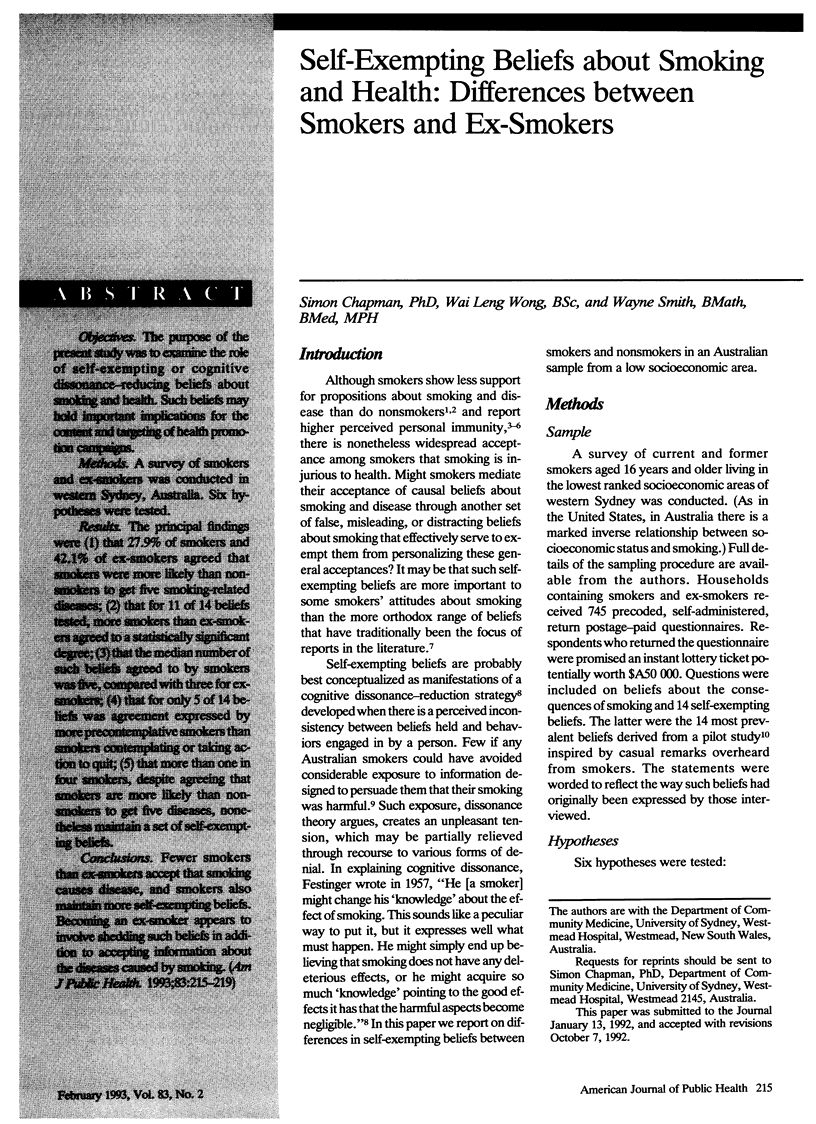
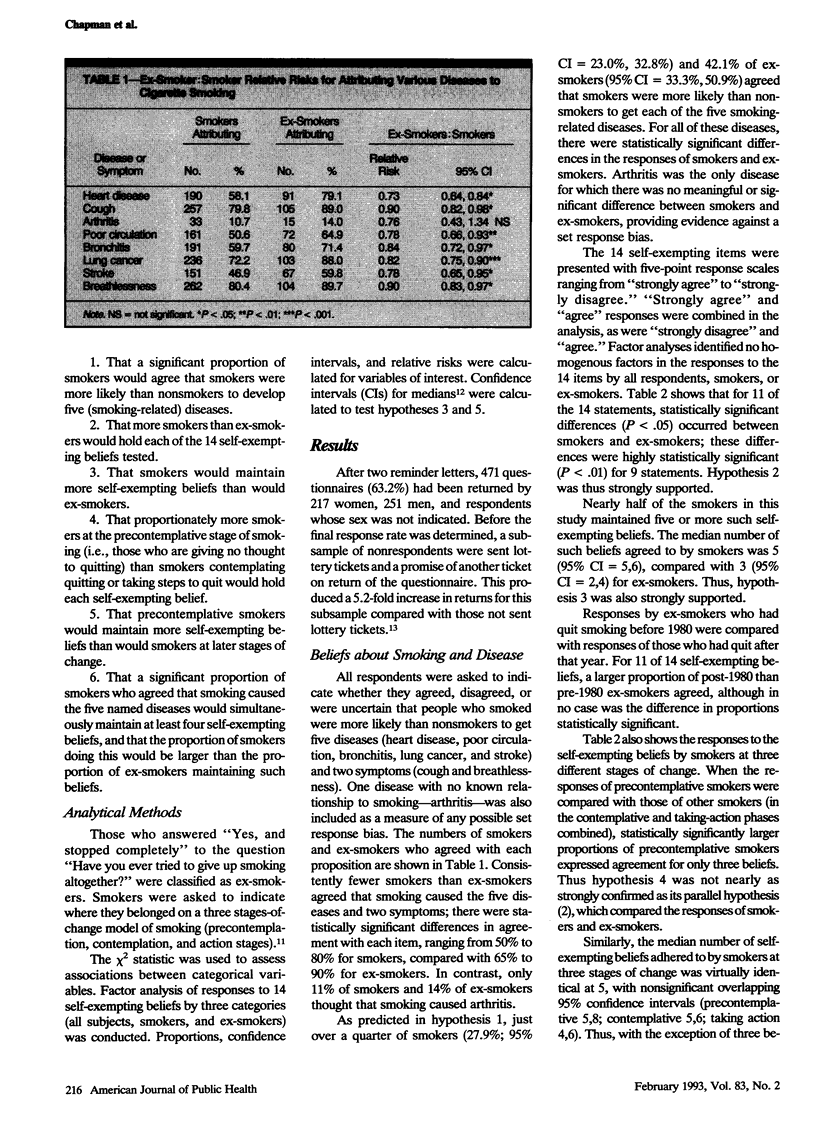
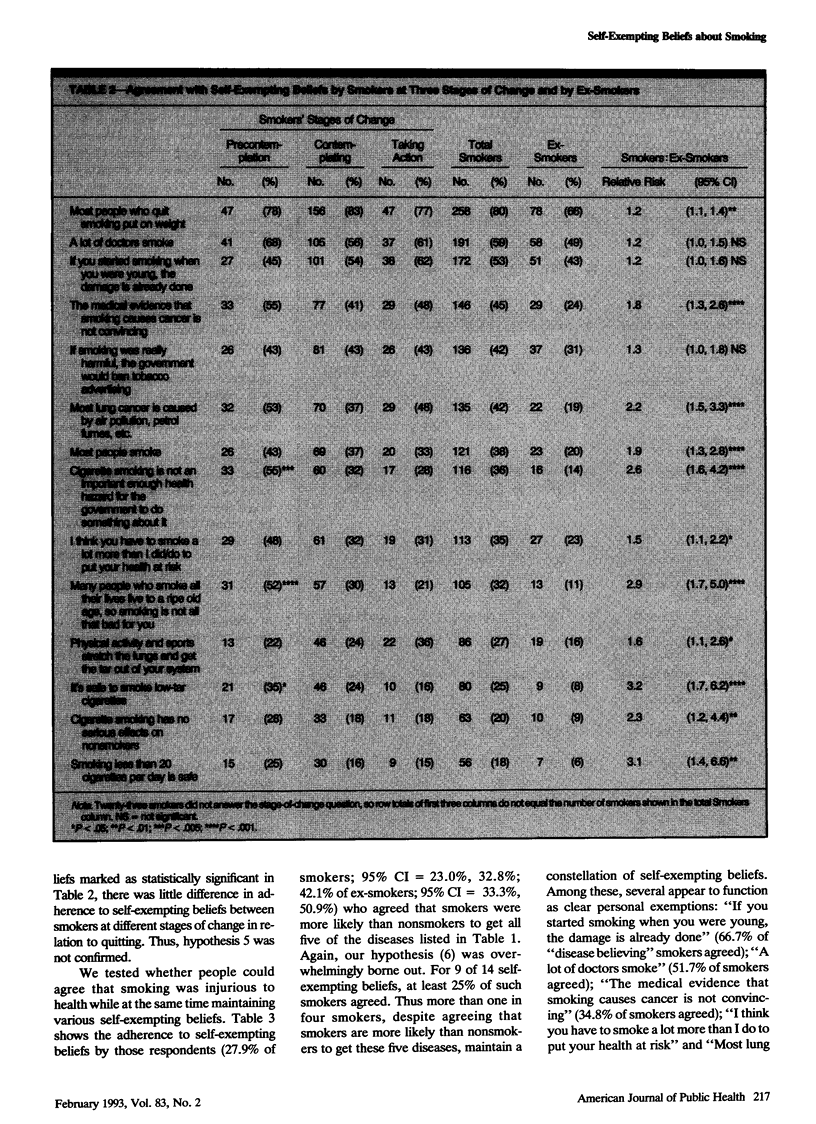
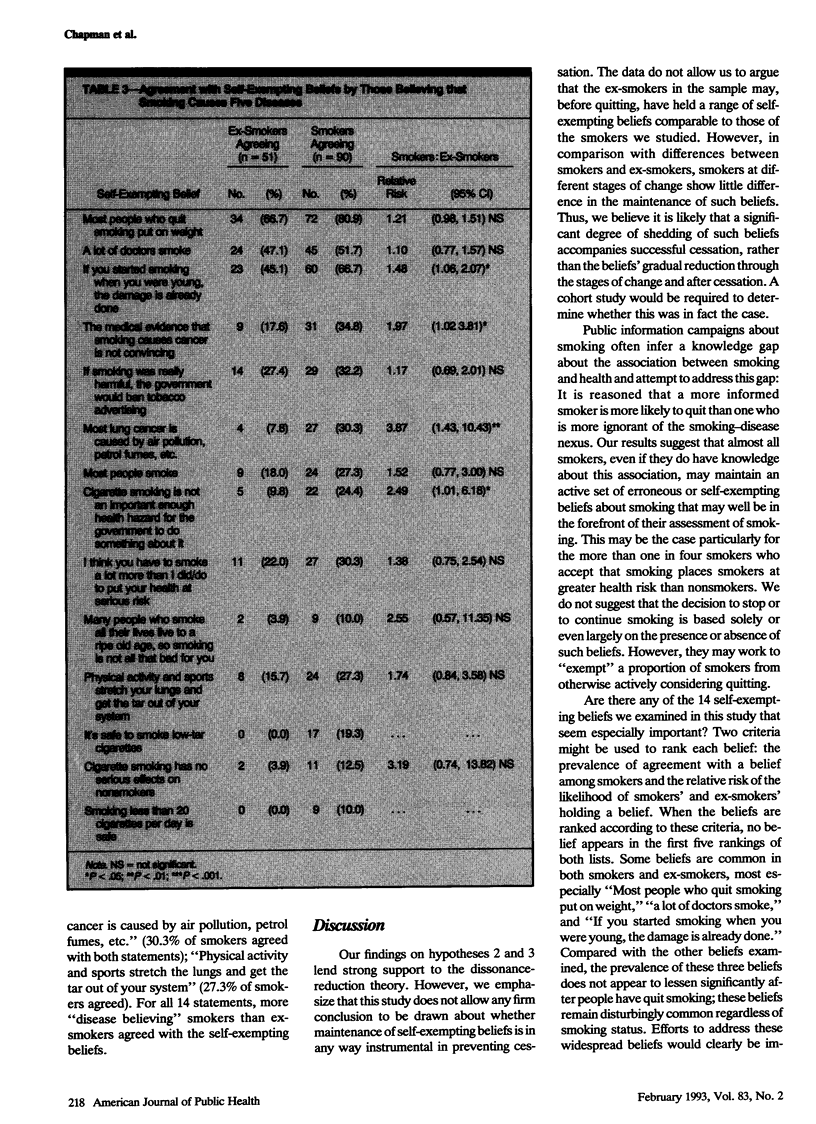
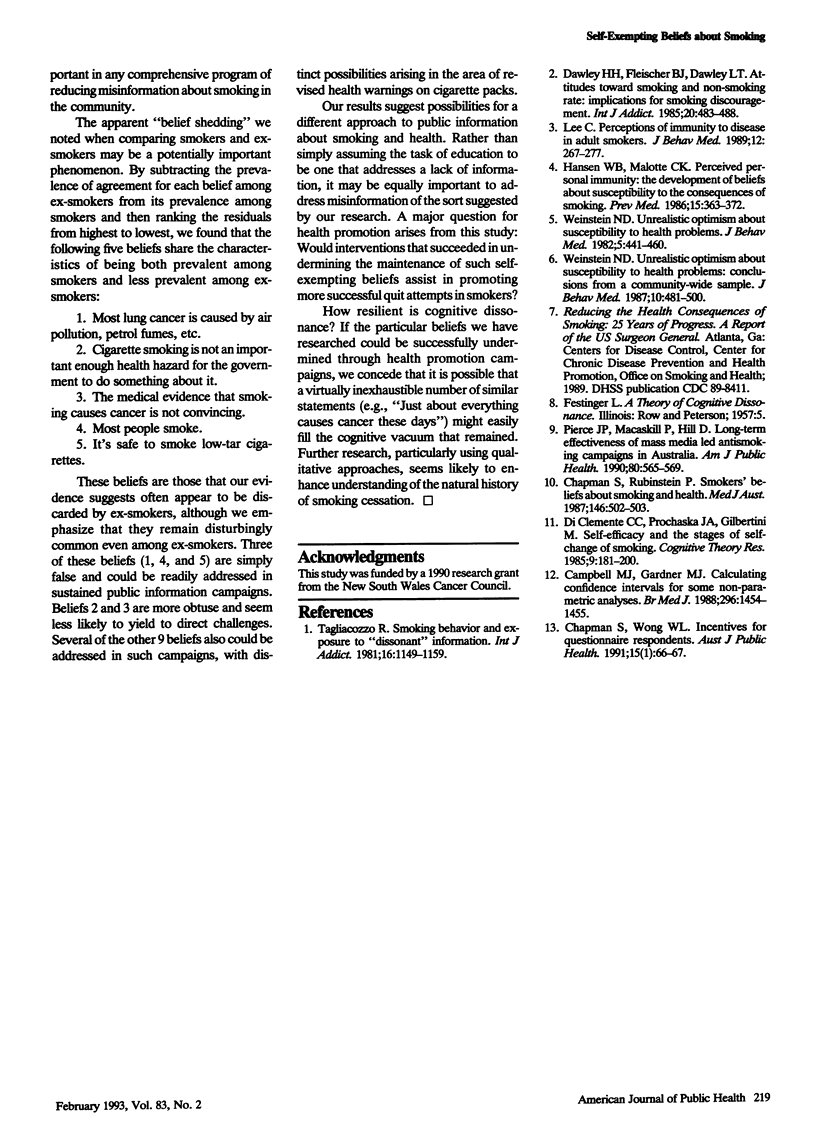
Selected References
These references are in PubMed. This may not be the complete list of references from this article.
- Campbell M. J., Gardner M. J. Calculating confidence intervals for some non-parametric analyses. Br Med J (Clin Res Ed) 1988 May 21;296(6634):1454–1456. doi: 10.1136/bmj.296.6634.1454. [DOI] [PMC free article] [PubMed] [Google Scholar]
- Chapman S., Rubinstein P. Smokers' beliefs about smoking and health. Med J Aust. 1987 May 4;146(9):502–503. doi: 10.5694/j.1326-5377.1987.tb120375.x. [DOI] [PubMed] [Google Scholar]
- Chapman S., Wong W. L. Incentives for questionnaire respondents. Aust J Public Health. 1991 Mar;15(1):66–67. doi: 10.1111/j.1753-6405.1991.tb00013.x. [DOI] [PubMed] [Google Scholar]
- Hansen W. B., Malotte C. K. Perceived personal immunity: the development of beliefs about susceptibility to the consequences of smoking. Prev Med. 1986 Jul;15(4):363–372. doi: 10.1016/0091-7435(86)90004-6. [DOI] [PubMed] [Google Scholar]
- Lee C. Perceptions of immunity to disease in adult smokers. J Behav Med. 1989 Jun;12(3):267–277. doi: 10.1007/BF00844871. [DOI] [PubMed] [Google Scholar]
- Pierce J. P., Macaskill P., Hill D. Long-term effectiveness of mass media led antismoking campaigns in Australia. Am J Public Health. 1990 May;80(5):565–569. doi: 10.2105/ajph.80.5.565. [DOI] [PMC free article] [PubMed] [Google Scholar]
- Tagliacozzo R. Smoking behavior and exposure to "dissonant" information. Int J Addict. 1981 Oct;16(7):1149–1159. doi: 10.3109/10826088109039169. [DOI] [PubMed] [Google Scholar]
- Weinstein N. D. Unrealistic optimism about susceptibility to health problems. J Behav Med. 1982 Dec;5(4):441–460. doi: 10.1007/BF00845372. [DOI] [PubMed] [Google Scholar]
- Weinstein N. D. Unrealistic optimism about susceptibility to health problems: conclusions from a community-wide sample. J Behav Med. 1987 Oct;10(5):481–500. doi: 10.1007/BF00846146. [DOI] [PubMed] [Google Scholar]


